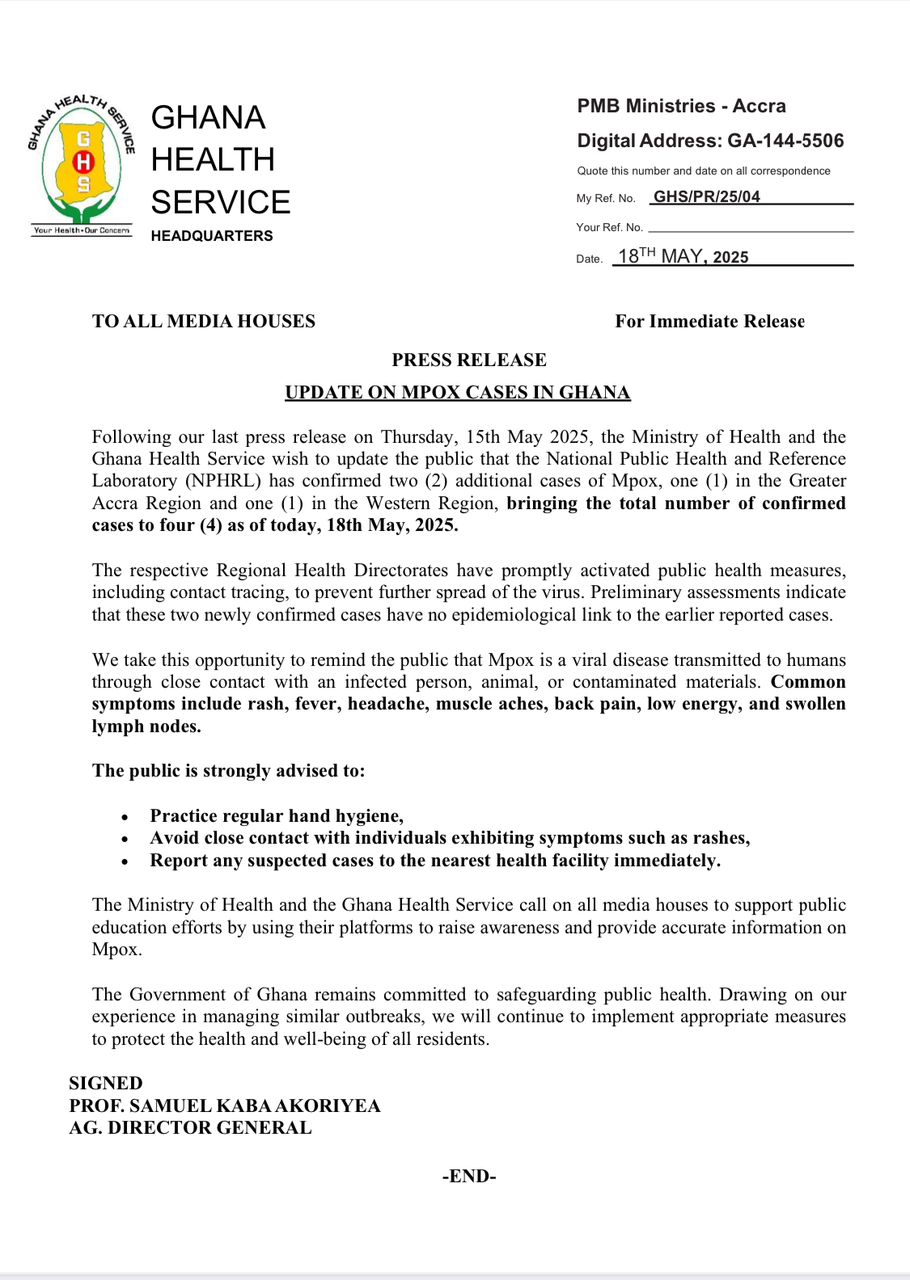By Francis Kobena Tandoh
Two additional cases of Mpox have been recorded in the country, the Ghana Health Service (GHS) confirmed in a statement on Sunday.
According to the statement, the two additional cases which brings total number to four, were recorded in the Greater Accra and Western Regions.
Acting Director General of the GHS, Prof. Samuel Kaba Akoriyea, observed that the respective regional health directorates have activated public healt measures to prevent spread of the virus.
“The Ministry of Health and the Ghana Health Service (GHS) wish to update the public that the National Health and Reference Laboratory (NPHRL) has confirmed two additional cases of Mpox, one in the Greater Accra Region and one in the Western Region, bringing the total number of confirmed cases to four as of May 18th, 2025,” said the statement.
“The respective regional health directorates have promptly activated public health measures, including contact tracing, to prevent further spread of the virus. Preliminary assessment indicate that these two newly confirmed cases have no epidemiological link to the earlier reported cases,” it added.
The Ghana Health Service advised the public to adhere to regular hand washing avoiding close contact with individuals exhibiting symptoms such as rashes, and report any suspected cases to the nearest health facilities immediately.
The Health Ministry and the GHS assured the public that the government remains committed to safeguarding public health and that it will continue to implement appropriate measures to protect the health and well-being of all.
According to the World Health Organization (WHO), Mpox, previously known as monkeypox, is a viral illness caused by the monkeypox virus, a species of the genus Orthopoxvirus. There are two distinct clades of the virus: clade I (with subclades Ia and Ib) and clade II (with subclades IIa and IIb).
In 2022–2023 a global outbreak of Mpox was caused by the clade IIb strain. Mpox continues to be a threat today, and an upsurge of cases in the Democratic Republic of the Congo and other countries caused by clades Ia and Ib has raised concern.
Symptoms typically include rash, fever, headache, muscle aches, back pain, low energy, and swollen lymph nodes. Enditem
Source: Ghana Eye Report
Find the statement from the Ghana Health Service below:





